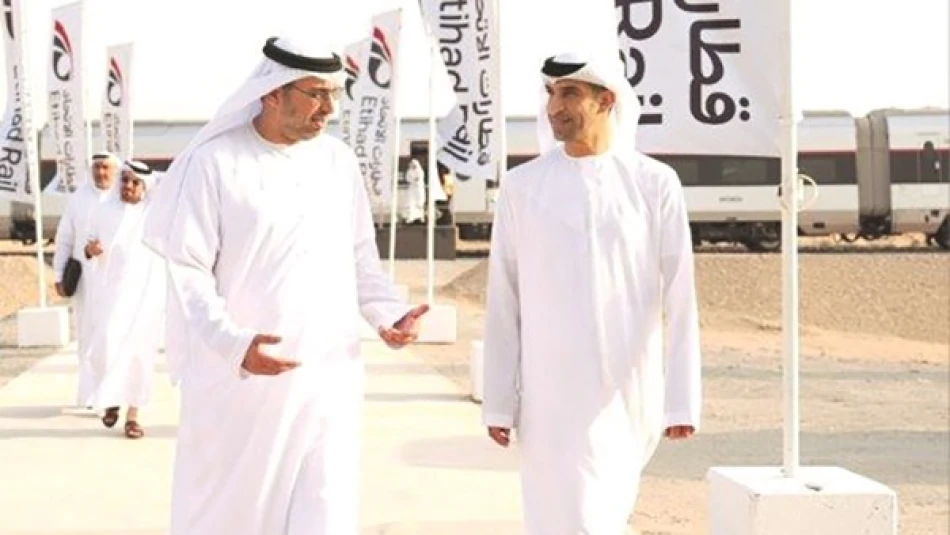
UAE's Logistics Hub Status Strengthened by 'Union Rail,' Says Zeyoudi
The UAE's Etihad Rail project is positioning the country as a major global logistics hub, with passenger services set to launch in 2026 alongside massive freight capabilities. The railway will connect 11 cities from the western border to the eastern coast, handling up to 36.5 million passengers annually by 2030 while moving 60 million tons of cargo per year.
Foreign Trade Minister Dr. Thani bin Ahmed Al Zeyoudi took a test ride from Dubai's Al Qudra area to Fujairah, highlighting how the rail network will link the UAE's ports, industrial zones, and free trade areas. The project represents a major shift in how goods and people move across the Emirates.
"Launching passenger services will be a pivotal step in expanding our transport network," Al Zeyoudi said during the trial run. "This massive national project will speed up cargo and passenger movement between industrial areas, ports, and transport hubs while reducing harmful emissions."
The 900-kilometer network stretches from Ghuweifat on the western border to Fujairah on the east coast. It connects major ports including Khalifa Port, Jebel Ali Port, and Al Ruwais Port, creating efficient cargo flows from entry points to industrial zones.
Each train will carry up to 400 passengers, offering a real alternative to road travel between major destinations. This should ease traffic congestion on main highways while supporting the UAE's goal of carbon neutrality by 2050.
For businesses and traders, the railway creates new opportunities. The system will move industrial production to key nodes in global supply chains more efficiently than current methods. Companies operating in the UAE's industrial and free zones will have faster, more reliable connections to ports and export markets.
Shadi Malak, CEO of Etihad Rail, emphasized how the passenger service marks a new phase for the company under Sheikh Dhiyab bin Mohamed bin Zayed Al Nahyan's leadership. The project reflects the UAE's commitment to building infrastructure that enhances regional integration.
The timing matters for regional trade patterns. As global supply chains shift and companies look for alternatives to traditional routes, the UAE is building the physical infrastructure to capture more of this traffic. The rail system positions the country to handle growing trade volumes between Asia, Europe, and Africa more effectively than relying solely on road and air transport.
Most Viewed News

 Layla Al Mansoori
Layla Al Mansoori






